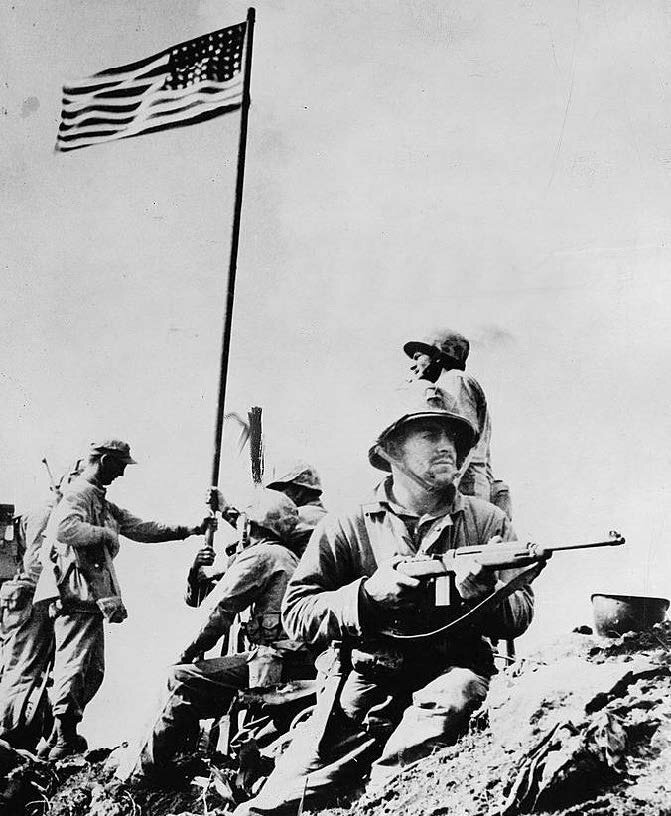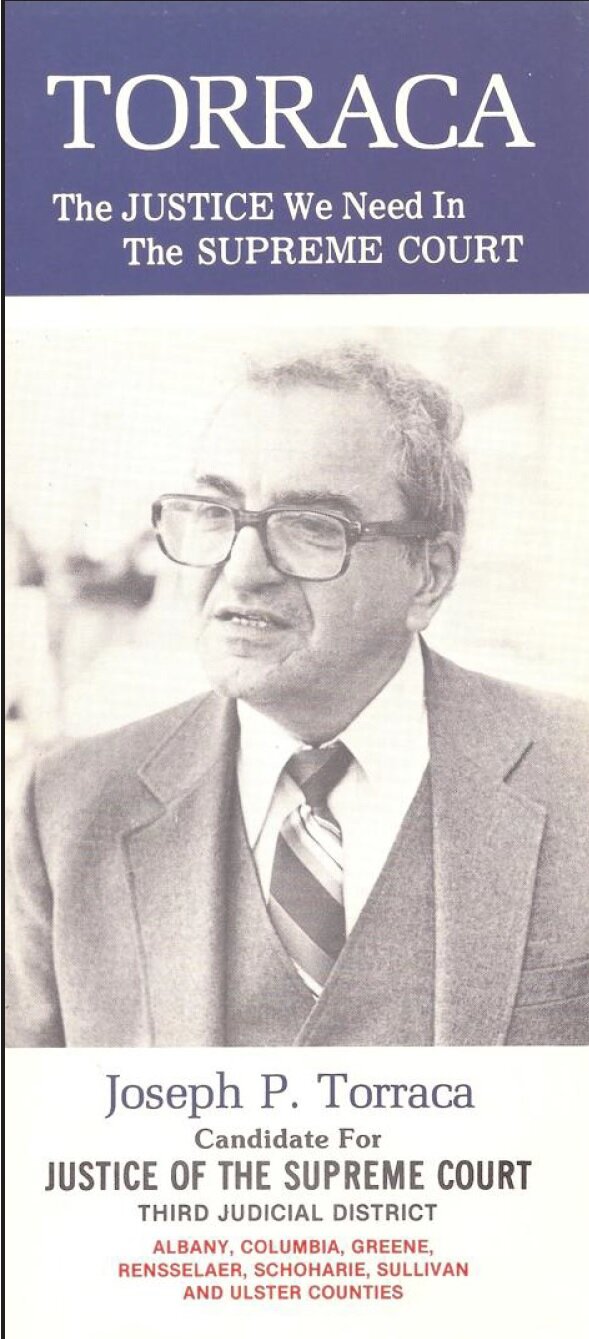Joseph Torraca
In 1940, the war on the European continent had been raging on for a full year, with Hitler’s armies sweeping across the continent. In that same year, Japan had signed a treaty with Germany and Italy. In search of resources, Japan invaded the French colony of Indo-China in 1941. The United States promptly placed an embargo on Japanese goods, a boycott that could have resulted in a large blow to the Japanese economy. In search of iron and oil, the Japanese decided to invade Southeast Asia. This would mean attacking United States naval bases in the Philippines, and Pearl Harbor, Hawaii to protect Japan’s navy.
On December 7, 1941, “A date which will live in infamy,” hundreds of Japanese planes carried out a surprise attack on Pearl Harbor. Lasting only a few hours, the attack was a devastating blow to the proud Pacific Fleet. The Japanese destroyed over 300 planes and 20 navy vessels, including sinking the battleship USS Arizona. The attack took the lives of over 2,000 seamen, and wounded over 1000 more. On December 8, 1941, the United States was at war.
Joseph Torraca was born in New York City April 19, 1924, the son of a chief electrical inspection engineer for the City. He grew up on the Lower East Side on Cherry Street. He joined the Boy Scouts in 1937, in a troop in Lower Manhattan, near the Fulton Fish Market. The troop, run by Dominican nuns, at the Madonna House, was very poor. For their summer camp, each scout would pay 25 cents for a week of camping. They would hike across the George Washington Bridge to Fort Lee, where they would pitch their tents and set up their camp.
When Pearl Harbor was attacked, Joseph was at his cousin’s apartment on Oliver Street, when they heard, over the radio, that Japan had attacked Pearl Harbor. He immediately wanted to enlist. As he was 17 at the time, he needed his parents’ consent, which they refused to give. When he turned 18, he enlisted in the Marine Corps, and was sent to boot camp at Parris Island. His drill instructor at boot camp was, as Joseph puts it, “God-like” in his authority over his men. “He possessed the power to make his men fall into formation at 3:00 in the morning for the slightest infraction.” By doing this, he instilled cooperation and teamwork into the minds of the young Marines.
Following boot camp, he was sent to the island of Guam, arriving at the island near the end of the American invasion. He was assigned to the 3rd Division, 21st Regiment, G Company under the command of General Howland “Howling Mad” Smith, whom he greatly admired, “A Marine through and through,” who fought hard for his men.
Iwo Jima would prove to be Lieutenant Torraca’s first engagement and trial by fire. Before hitting the beaches, Joseph and his fellow Marines had to circle around for hours in their ship before piling into their landing craft. He and the 21st Regiment were assigned to land three days after D-Day. “We were given a gun, and told to board the ship. Upon landing, we would run up the beach and try to find cover.”
After fighting their way up the beach, they set out for their objective, Airfield Number Two in the middle of the island. Torraca recalls that it was difficult to dig foxholes in the volcanic ash that covered the entire island. Japanese snipers would pop up out of nowhere; often from underground tunnels the Marines thought had been cleared and sealed.
The Japanese had hundreds of these inter-connecting underground tunnels and bomb shelters on Iwo Jima. Thus, while the Americans believed that their weeks of bombing had weakened the Japanese defenders, in reality the air raids had had very little effect on the enemy. Lieutenant Torraca and his men were not fully prepared for the fierce firepower of the enemy. The underground tunnels also enabled the Japanese to move from one part of the island to another without being seen by the Americans, adding to the danger.
Judge Torraca can still remember today the intense barrage of enemy machine gun bullets and mortar shells exploding all around them. While under Japanese fire, taking cover in a foxhole, an enemy bomb landing nearby detonated only a few feet away from Lieutenant Torraca. The force of the explosion knocked him out.
From the beginning of the assault Lieutenant Torraca had observed the bravery and heroism of the Navy medics known as corpsmen. “You only needed to shout ‘Medic, Medic’ and one would appear beside you.” These brave Navy corpsmen, who carried no weapons to defend them themselves, endured the same dangers and hardships as the armed Marines often times running into the open under enemy fire to save the life of a wounded Marine. It was these corpsmen that brought Lieutenant Torraca away, off the beach into a hospital ship, where he was diagnosed with a severe concussion.
He recalls waking up, and seeing men being brought onboard the ship, many of them missing limbs. After realizing that he was still in one piece, Lieutenant Torraca, despite his head pain, escaped from the hospital ship, and rejoined his unit, helping them to secure the airfields. With their airfields captured, the Japanese knew the battle was lost yet still kept fighting. Many of the Japanese that were still alive committed suicide on the island, rather than surrender to the Americans. The Japanese soldiers that fought on from the caves on the island were torched with flamethrowers, as Judge Torraca recalls with emotion. By the end of March, with the Americans secure on the island, the battle was officially over, and Lieutenant Torraca along with his company was sent back to Guam.
Upon arriving on Guam, he and his unit discovered that a typhoon had destroyed all their equipment and tents on the island. Lieutenant Torraca went to the Navy to look for supplies outside of channels. He bartered for tents and equipment, paying for them with Green River bourbon. He then assigned three large trucks to secretly carry back as much of the Navy gear as they could handle. When the Marines’ encampments were inspected, Lt. Torraca’s men hid their whiskey-tainted Navy tents in the woods to avoid detection.
In Guam, Major General Graves Erskine, head of the 3rd Division, presented the Purple Heart medal to Lieutenant Torraca, on the recommendation of his commanding officer Colonel English. Following that, as Lieutenant Torraca had obtained 85 points on his record, he was allowed to go back home. He later enlisted in Naval Intelligence, and served in the Korean War.
After leaving the military, he went to college at Fordham University at night, followed by New York Law School, working during the daytime to support himself. He started a business with his old Marine buddy, Stellos a/k/a “Stanley”, which they named the T&T Trading Company. Joseph and Stanley, being the two shortest Marines in their company, had always found themselves next to each other at the end of every line, and so became lifelong friends. On one occasion while in the Marines, Stanley had invited Joseph to a Greek dance. Not speaking any Greek, Joseph asked Stanley to teach him how to say, “Would you like to dance with me?” in Greek. When Lt. Torraca whispered the words Stanley taught him to a Greek miss, he was awarded with an outraged slap in the face, to the embarrassment of Joseph and the amusement of his jokester friend.
Their post-war business did not prosper as Joseph had hoped, and upon the recommendation of the Dutchess County District Attorney, he moved to the tiny hamlet of Marlboro in Ulster County, N.Y. to begin his law practice. Recalling his trepidation at moving up the Hudson River, Judge Torraca recalls, with a laugh, “Anything north of the Bronx Zoo was the wilderness to me.”
He became friends with John Foglia, the original owner of the Ship Lantern Inn, who introduced Joseph to the local district attorney. Joseph was appointed an Assistant District Attorney, a position he held for several years. In 1960, he was elected District Attorney for Ulster County. In 1981, he began his career as a distinguished judge on the New York State Supreme Court. He served 14 years, retiring at the age of 72. Judge Torraca currently lives in New Paltz with his wife, Constance.
Despite all the horrors of World War II in the Pacific, Judge Torraca maintains some fond memories of his time in the military. Once, when he was stationed in Hawaii, the kid from the city wanted to learn how to drive a car. He asked the officer in charge of the Motor Transport Unit, Captain Love, to let him learn how to drive. Captain Love assigned a sergeant to teach him. The only car available was a military Jeep. His sergeant sat next to him, while Lt. Torraca drove up a long steep hill. As they approached the summit, a large oversize Army truck had crested over the top of the hill, coming towards them. This being his first time driving, he accidentally pushed the gas pedal instead of the brake while swerving to the side of the road. The Jeep tipped over. Unhurt, he and the soldiers in the truck righted the vehicle. Unfazed from the incident, his pitiless sergeant had him get back in the driver’s seat and drive back down the hill, where the inexperienced lieutenant got them entangled in an unfortunate incident with the local fire station’s mascot dog. The next day, with perhaps suspicious timing, Lieutenant Torraca received orders to ship out. There are only a precious few veterans living today who can give us a firsthand description of the battles from World War II. These few brave souls, mixed in among us enjoying the peace and comfort of our everyday lives, encountered events that are too horrible to be imagined. Many of these experiences to which they bore witness occurred to them at a very young age, and many veterans of that era still have a difficult time re-telling the things they did and saw. These same brave patriots who continue to carry on their shoulders the heavy memories of war are the heroes who risked their lives to defend their country during the bloodiest period of time in world history.
Judge Torraca is proud to be a Marine. He loved the camaraderie and esprit de corps, and will always cherish the motto of the Marines, Semper Fidelis - always faithful. When asked what advice he gives to his grandchildren, Judge Torraca replies, with a smile, “Do your duty, and always obey your mother and your father!”
Hudson Valley Honor Flight September 2013







